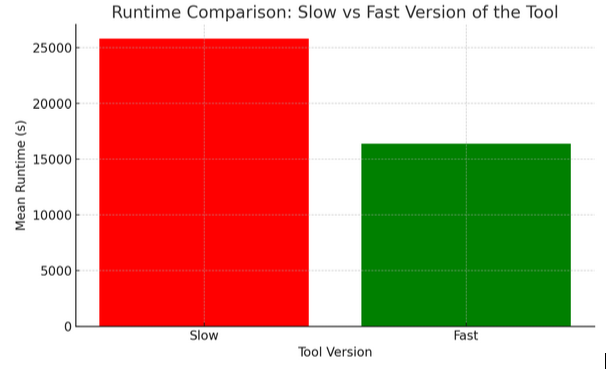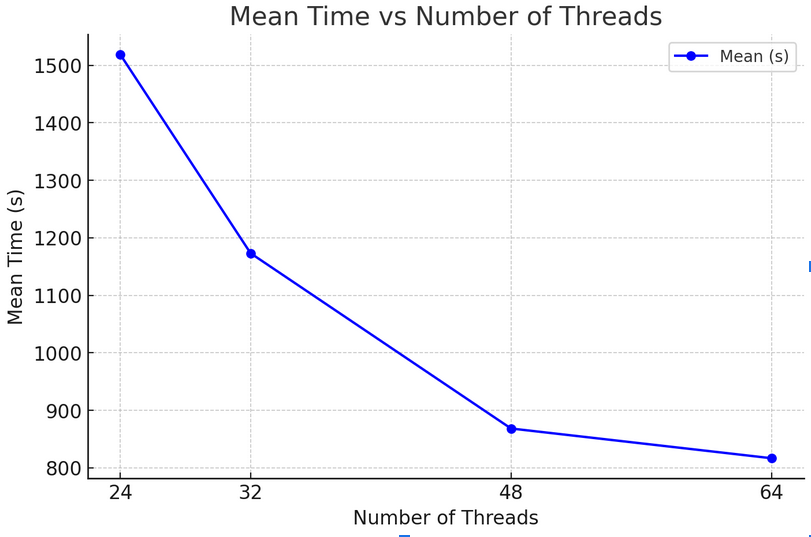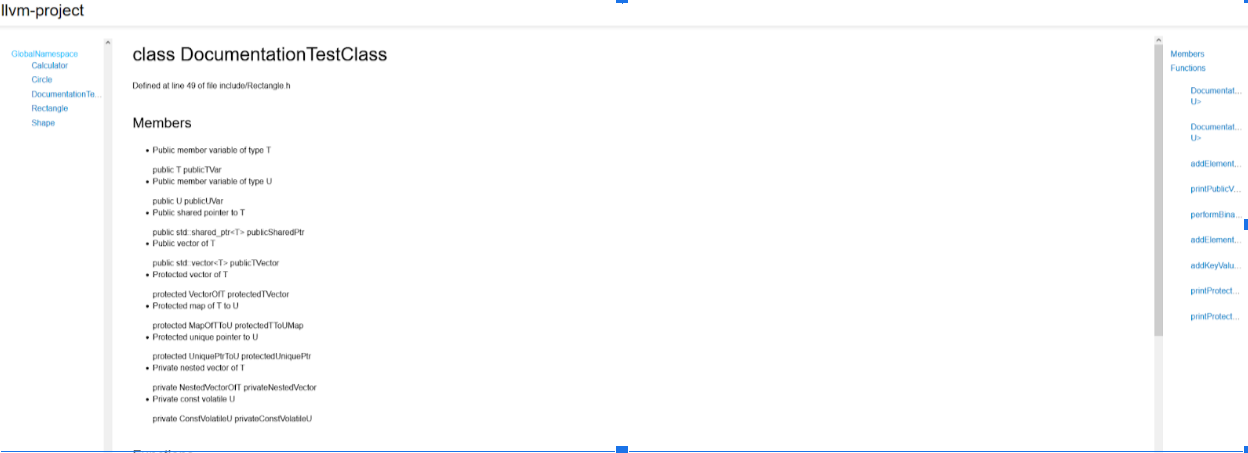GSoC 2024: Improve Clang Doc
Hi, my name is Peter, and this year I was involved in Google Summer of Code 2024. I worked on improving the Clang-Doc documenation generator
Mentors: Petr Hosek and Paul Kirth
Project Background
Clang-Doc is a documentation generator developed on top of libtooling, as an alternative to Doxygen. Development started in 2018 and continued through 2019, however, it has since stalled. Currently, the tool can generate HTML, YAML, and markdown but the generated output has usability issues. This GSOC project aimed to address the pain points regarding the output of the HTML, by adding support for various C++ constructs and reworking the CSS of the HTML output to be more user-friendly.
Work Done
The original scope of the project was to improve the output of Clang-Doc’s generation. However during testing the tool was significantly slower than expected which made developing features for the tool impossible. Documentation generation for the LLVM codebase was taking upwards of 10 hours on my local machine. Additionally, the tool utilized a lot of memory and was prone to crashing with an out-of-memory error. Similar tools such as Doxygen and Hdoc ran in comparatively less time for the same codebase. This pointed to a significant bottleneck within Clang-Doc’s code path when generating large-scale software projects. Due to this the project scope quickly changed to improving the runtime of Clang-Doc so that it could run much faster. It was only during the latter half of the project did the scope changed back to improving Clang-Doc’s generation.
Added More Test Cases to Clang-Doc test suite
Clang-Doc previously had tests which did not test the full scope of the the HTML or Markdown output. I added more end-to-end tests to make sure that in the process of optimizing documentation generation we were not degrading the quality or functionality of the tool.
In summary, I added four comprehensive tests that covered all features that we were not testing such as testing the generation for Enums, Namespace, and Records for HTML and Markdown.
Improve Clang-Doc’s performance by 1.58 times
Internally, the way Clang-Doc works is by leveraging libtooling’s ASTVisitor class to parse the source level declarations in each TU.
The tool is architected using a Map-Reduce pattern. Clang-Doc parses each fragment of a declaration into an in-memory data format which is serialized then into an internal format and stored as a key value paired, identified by their USR. After, Clang-Doc deserializes and combines each of the fragment declarations back into the in-memory data format which is used by each of the backend to generate the results.
Many experiments were conducted to identified the source of the bottleneck. First I tried benchmarking the code with many different codebases such JSON, and fmtlib to identify certain code patterns that slowed the code path down. This didn’t really work since the bottlenecking only showed up for large codebases like LLVM. Next I leverage Windows prolifer (since I was coding on windows) however the visualizations was not helpful and the my system was not capable of profiling the 10 hour runtime required to compile LLVM documenation.
Eventually, we were able to identify a major bottleneck in Clang-Doc’s by leveraging the TimeProfiler (similar to -ftime-trace in clang) code to identify where the performance bottleneck was. Clang-Doc was performing redundant work when it was processing each declaration. We settled on a caching/memoization strategy to minimize the redundant work.
For example, if we had the following project:
//File: Base.h
class Base {}
//File: A.cpp
#include "Base.h"
...
//File: B.cpp
#include "Base.h"
...
In this case, the ASTVisitor invoked by Clang-Doc would visit the serialized Base class three times, once when it is parsing Base.h, another when its visiting A.cpp then B.cpp. The problem was that there was no mechanism to identify declarations that we had already seen. Using a simple dictionary which kept track of a list of declaration that Clang-Doc had visited as a basic form of memoization ended up being a surprisingly effective optimization.
Here is a plot of the benchmarking numbers:

The benchmarking numbers were performed on a machine with a 6th gen Intel(R) Xeon(R) CPU @ 2.00GHz w/ 96 cores, and 180GB of ram. Clang-doc is able to run concurrently, however the benchmark here is with concurrency set to 2. This is because anything higher crashes the slow version of the tool with an out of memory error. It took around 6 hours to complete a full generation of LLVM documentation in the previous tool, where as current version took around 4 hours.
Here is a plot of the benchmark by number of threads:

We notice a pretty dramatic dropoff as more and more threads are utilize, the original time t 6 hours was cut down to 13 minutes at 64 threads. Considering the previous versions of the tool could not use the higher thread count without crashing (even on a machine with 180GB of ram), the performance gains are even more dramatic.
Added Template Mustache HTML Backend
Clang-Doc originally used an ad-hoc method of generating HTML. I introduced a templating language as a way of reducing project complexity and reducing the ease of development. Two RFCs were made before arriving at the idea of introducing Mustache as a library. Originally the idea was to introduce a custom templating language, however, upon further discussion, it was decided that the complexity of designing and implementing a new templating language was too much. An LLVM community member (@cor3ntin) suggested using Mustache as a templating language. Mustache was the ideal choice since it was very simple to implement, and has a well defined spec that fit what was needed for Clang-Doc’s use case. The feedback on the RFC was generally positive. While there was some resistance regarding the inclusion of an HTML support library in LLVM, this concern stemmed partly from a lack of awareness that HTML generation already occurs in several parts of LLVM. Additionally, the introduction of Mustache has the potential to simplify other HTML-related use cases. In terms of engineering wins, this library was able to cut the direct down on the HTML backend significantly dropping 500 lines of code compared to the original Clang-Doc HTML backend. This library was also designed for general-purpose use around LLVM since there are numerous places in LLVM where various tools generate HTML in its way. Using the Mustache templating library would be a nice way to standardize the codebase.
Improve Clang-Doc HTML Output
The previous version of Clang-Doc’s HTML output was a pretty minimal, bare bones implementation. It had a sidebar that contained every single declaration within the project which created a large unnavigable UI. Typedef documentation was missing, plus method documentation was missing details such as whether or not the method was a const or virtual. There was no linking between other declarations in the project and there was no syntax highlighting on any language construct.
With the new Mustache changes an additional backend was added using the specifier (–format=mhtml). That addresses these issues.
Below is a comparison of the same output between the two backends


You can also visit the output project on my github.io page link here.
Note: this output is still a work in progress.
Learning Insight
I’ve learned a lot in the past few months, thanks to GSOC I now have a much better idea of what it’s like to participate in a large open-source project. I received a lot of feedback through PRs, making RFC, and collaborating with other GSOC members. I learned a lot about how to interact with the community and solicit feedback. I also learned a lot about instrumentation/profiling code having conducted many experiments to try to speed Clang-Doc up.
Future Work
As my work concluded I was named as one of the maintainers of the project. In the future I plan to work on Clang-Doc until an MVP product can be generated and evaluated for the LLVM project. My remaining tasks include landing the Mustache support library and Clang-Doc’s Mustache backend, as well as gathering feedback from the LLVM community regarding Clang-Doc’s current output. Additionally, I intend to add test cases for the Mustache HTML backend to ensure its robustness and functionality.
Conclusion
Overall the current state of Clang-Doc is much healthier than it was before. It now has much better test coverage across all its output, markdown, html, yaml. Whereas previously there were no e2e test cases that were not as comprehensive. The tool is significantly faster especially for large scale projects like LLVM making documentation generation and development a much better experience. The tool also has a simplified HTML backend that will be much easier to work with compared to before leading to a faster velocity for development.
Acknowledgements
I’d like to thank my mentors, Paul and Petr for their invaluable input when I encounter issues with the project. This year has been tough for me mentally, and I’d like to thank my mentors for being accommodating with me.